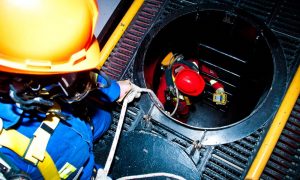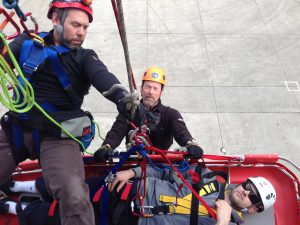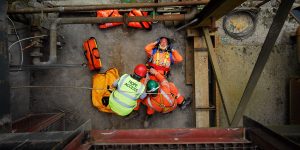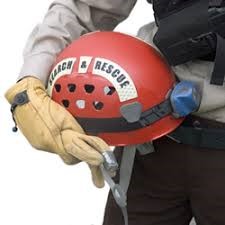Project Description
Why attend
In natural or technological disasters, people could be trapped in the wreckage of their homes or places of work. Many of them could die unless rescued quickly. Although specialized dog teams and sophisticated listening devices are available to help search for trapped people, the bulk of rescue work is done by local first responders: fire, ambulance, and police personnel, who are trained and certified. The first responders are often assisted by the general public; but it takes more than just willing hands to save lives. Untrained, unorganized people may endanger themselves and those they are trying to rescue.

Course Objectives
By the end of the course, participants will be able to:
Understand the principles of rescuing and the Planning for Rescue-Related Disasters.
Analyse a range of the operational considerations and incident command issues that are influenced by technical demands associated with: Safe Working at Height, First Response and Rope Rescue – Water rescue – Confined space – Casualty management -Wide area search..
Examine the principal equipment selection issues and standards including the appropriate legislative frameworks and approved codes of practice.
Demonstrate understanding of the physical environment relating to specialist rescue and the limitations this may present.

Who should attend
This course is ideal for either for Emergency Services personnel who are or may be involved in the management of search incidents or new employees who may, in the course of their normal duties, be called upon to take up a position in their company’s emergency response organisation. Alternatively, the course would suit anyone within the company who wishes to understand the principles of rescue activities.
Course Outline
- Evaluating Local Hazards-
- Rescue Operational Planning-
- Common Disaster Rescue Hazards-
- Measuring Disaster Potential
- The Rescue Revolution-
- Modern Rescue Systems-
- Rescue in the Era of Terrorism-
- Staffing Considerations for Rescue Units
- Coming to Grips with New Forms of Terrorism-
- The Importance of Effective Consequence Management-
- Preparing and Protecting First Responders-
- Rescue and Terrorism from Domestic and International Sources-
- CASE STUDIES
- Review of confined spaces regulations-
- Dynamic and other risk assessments-
- Permits to work- Using rescue equipment safely –
- Recovery of casualties – Basic first aid considerations –
- Communication systems –
- PPE, BA, escape systems –
- Site security for incident investigation –
- Decontamination and hygiene
- Basic rescue training – Introduction to ropes –
- Knot tying –
- Rescue first aid – Casualty handling-
- Stretcher, lashing and handling- Reconnaissance-
- Care and use of ladders- Lifting devices-
- Appreciation of damage to buildings-
- Basic firefighting and limitations
- Definition of Confined Space-Categorizing Confined Spaces-
- Permit Required Confined Space-
- Common Atmospheric Hazards in Confined Spaces-
- Primary and Secondary Irritants-
- Asphyxiants- Confined Space Entry Procedures-
- Emergency Procedures-
- Confined Space Entry Permits
Rescue Apparatus and Equipment Structure Collapse SAR Operations Water Rescue
- Respiratory, Cardiovascular and Skeletal System-
- Casualty Assessment-
- Common Medical Emergencies-
- Head Injuries-
- Treatment of the avalanched and hypothermic casualty-
- Mountain Rescue Protocols- Use of Medication
The workshop
This interactive training course includes the following training methodologies as presented on the next column based on percentage of the total tuition hours:
Lectures
Workshops & Work presentation
Case Studies & Practical Exercises
Videos, Sofware & General Discussion
The course instructor may modify the above training methodology before or during the course for technical reasons with no prior notice to participants.
Falcon Consulting Professionals is established in Greece for the last 15 years in the areas of technical consulting and professional training for the local industries. Falcon is expanding in GCC, aiming to provide the best consulting and training solutions to the industries of the region. Falcon’s instructors are accredited trainers and highly experienced in their fields, as well as adult training. We aspire to build our business relationships on mutual trust. The achievement of results with an emphasis on innovation and sustainability, quality, cost analysis and time scheduling are non-negotiable from the conceptual phase of the training.


